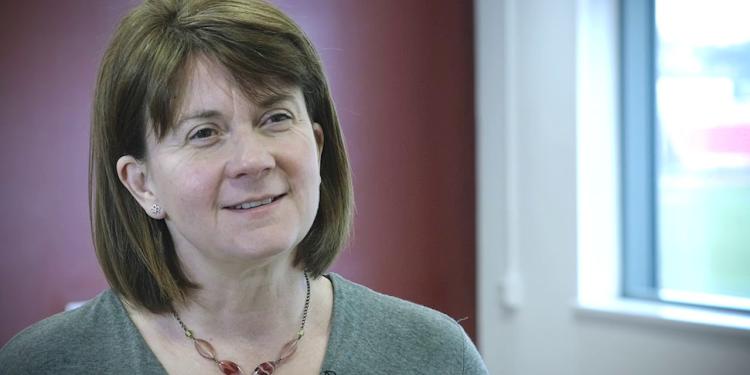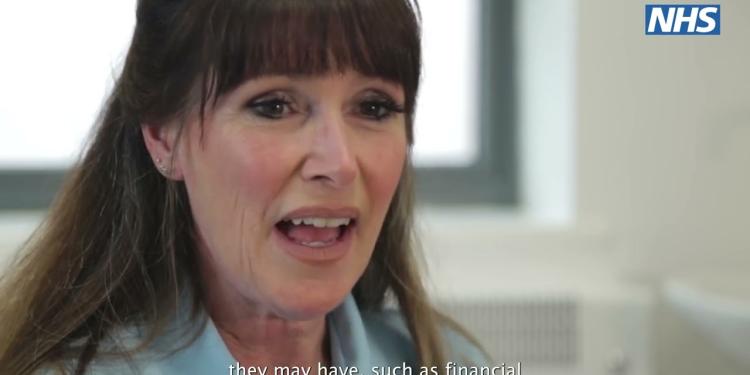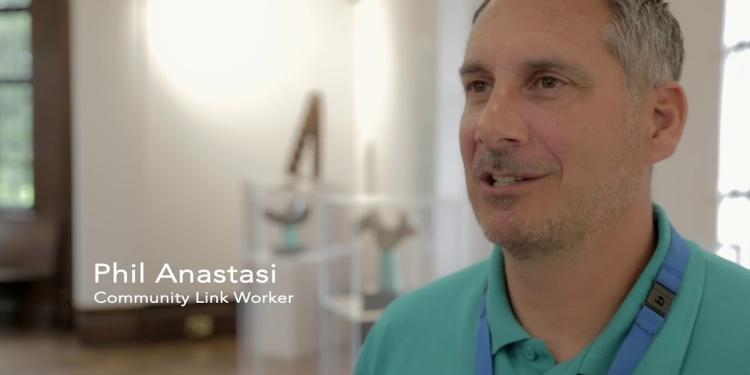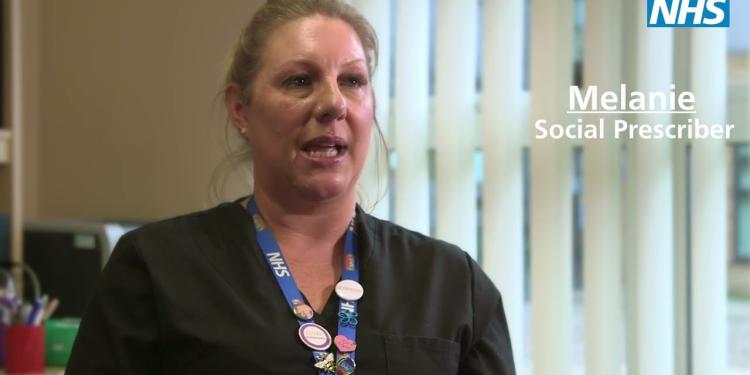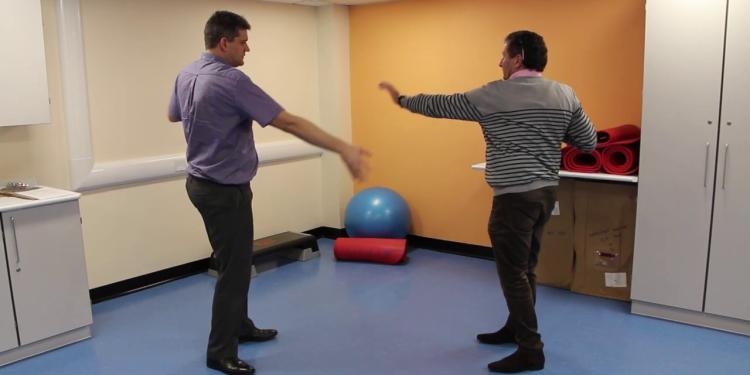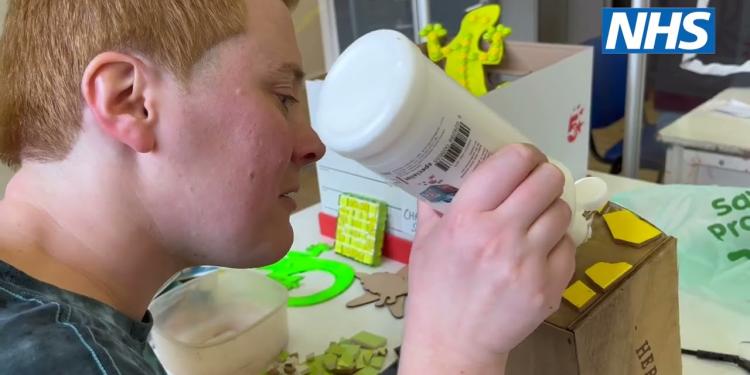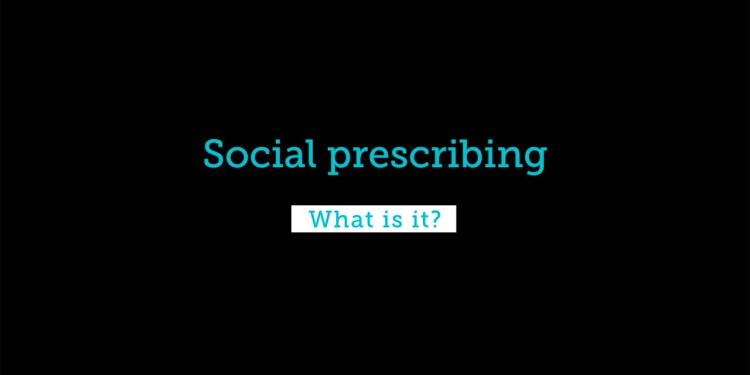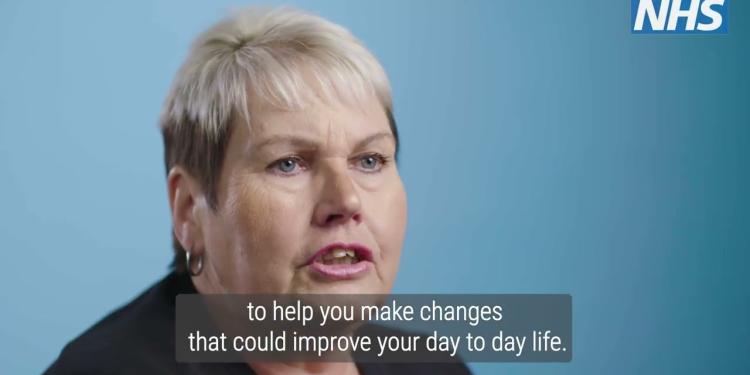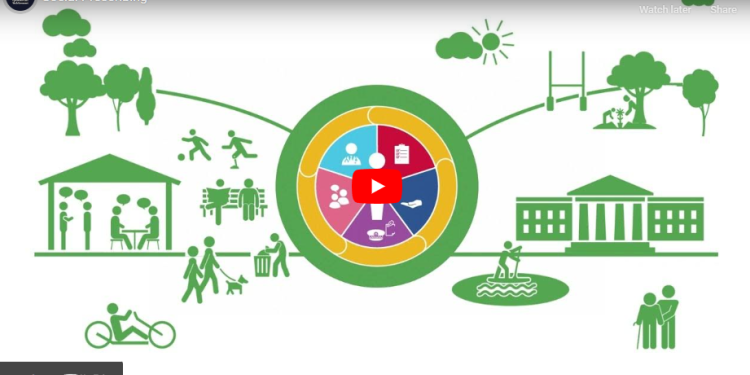Important Information On Using This Service
- Ergsy carefully checks the information in the videos we provide here.
- Videos shown by YouTube after a video has completed have NOT been reviewed by ERGSY.
- To view, click the arrow in the center of the video.
Using Subtitles and Closed Captions
- Most of the videos you find here will have subtitles and/or closed captions available.
- You may need to turn these on and choose your preferred language.
Turn Captions On or Off
- Go to the video you'd like to watch.
- If closed captions (CC) are available, settings will be visible on the bottom right of the video player.
- To turn on captions, click settings.
- To turn off captions, click settings again.
Find A Professional
What is a Social Prescriber, and How Do They Support General Practice?
Introduction to Social Prescribers
Social prescribers, also known as link workers, play a crucial role in the NHS framework by addressing patients’ non-clinical needs. Unlike traditional clinical treatments, social prescribing focuses on a holistic approach to health, considering social, emotional, and practical needs. These professionals are becoming an integral part of the UK's healthcare system, especially in general practices, helping patients with issues that medical professionals alone cannot address effectively.
Roles and Responsibilities
Social prescribers work closely with patients to identify their needs and connect them with appropriate community services and support networks. These can include mental health support, physical activity programs, social clubs, housing advice, and financial guidance. Their aim is to improve patients' overall well-being and reduce the impact of non-medical issues on their health.
They conduct detailed assessments to understand the patient's background and challenges, develop personalized plans, and follow up to ensure that the recommended services effectively meet the patients' needs. This detailed attention helps in tracking progress and making necessary adjustments over time.
Support for General Practice
General practitioners (GPs) often encounter patients with complex issues that are beyond the scope of medical treatment. Social prescribers support GPs by handling these cases, thus allowing doctors to focus on clinical care. This collaboration helps in reducing the pressure on the NHS, minimizing repeat visits for non-medical concerns, and enhancing patient care.
By addressing the social determinants of health, such as loneliness, stress, and socio-economic challenges, social prescribers contribute to improved patient outcomes. They serve as a bridge between healthcare and the community, ensuring that patients have access to comprehensive care. This system also improves patient satisfaction and engagement, as individuals feel more supported and understood.
Conclusion
Social prescribers represent a significant evolution in the UK healthcare system. They embody a patient-centric approach that tackles the broader determinants of health, complementing medical treatments. Their collaboration with general practices not only supports GPs but also enhances the quality of care patients receive, paving the way for a more inclusive and effective health service.
What is a Social Prescriber, and How Do They Support General Practice?
Meet Social Prescribers
Social prescribers are also called link workers. They help people with their non-medical needs. They work with doctors in the NHS. They help people with social, emotional, and practical needs, not just medical ones. They help people in general practices with problems that doctors can't solve alone.
What Do They Do?
Social prescribers talk to people to find out what help they need. They connect people with local services like mental health support, exercise programs, social clubs, housing help, and money advice. They want to make people feel better overall, not just healthier.
They take time to learn about each person and their problems. They make special plans for each person and check that the help is working. This helps people get better over time.
How They Help Doctors
Doctors meet people with problems that medicine alone can't fix. Social prescribers help by taking care of these problems. This means doctors have more time to focus on medical care. Working together like this helps the NHS run better. It means fewer visits to the doctor for non-medical problems and better care for everyone.
Social prescribers help with things like loneliness, stress, and money worries. This helps people get healthier. They make sure people get full care from both the health system and the community. This teamwork makes patients happier and feel more cared for.
In Summary
Social prescribers are an important part of healthcare in the UK. They look at the big picture of what makes us healthy. They work with doctors to give people better overall care. This new way of helping means health services can be more inclusive and effective.
Frequently Asked Questions
What is a social prescriber?
A social prescriber is a professional within the healthcare system who helps patients address non-medical issues and connect them with community services and support.
How does a social prescriber support general practice?
Social prescribers support general practice by alleviating pressure on medical practitioners, addressing social determinants of health, and providing holistic care through community resources.
Who can benefit from social prescribing?
Anyone experiencing issues such as loneliness, mental health problems, lifestyle challenges, or needing support with housing and financial issues can benefit from social prescribing.
What types of services can social prescribers refer patients to?
Social prescribers can refer patients to a wide range of services, including community groups, voluntary organisations, exercise classes, counselling services, and housing support.
How is a social prescriber different from a doctor or nurse?
Unlike doctors or nurses who focus on medical treatment, social prescribers address social and practical needs by connecting patients with community resources.
Do social prescribers require special training?
Yes, social prescribers typically undergo specific training in areas such as community resources, mental health, and counselling to effectively support patients.
Are social prescribing services free?
Social prescribing services are generally free as they are part of the NHS and are designed to support patients by connecting them with available community resources.
How do patients get referred to a social prescriber?
Patients can be referred to a social prescriber by their GP, other healthcare professionals, or they may self-refer depending on the practice's protocols.
What outcomes can be expected from social prescribing?
Positive outcomes from social prescribing can include improved mental and physical health, reduced isolation, increased community engagement, and better quality of life.
Can social prescribers help with mental health issues?
Yes, social prescribers can support patients with mental health issues by connecting them with appropriate counselling, community groups, or activities that promote mental well-being.
Is social prescribing available across the UK?
Social prescribing is becoming increasingly available across the UK, with many areas integrating these services into their primary care networks.
How do I know if social prescribing is right for me?
Discussing your needs with your GP or directly with a social prescriber can help determine if social prescribing is a suitable option for you.
What are some common reasons patients are referred to social prescribers?
Common reasons include social isolation, stress, housing issues, financial difficulties, lifestyle changes, and the need for community support.
How does social prescribing contribute to holistic care?
Social prescribing contributes to holistic care by addressing the social, emotional, and practical aspects of a patient's life, complementing medical treatments and improving overall well-being.
Can social prescribing reduce the burden on the NHS?
Yes, by addressing non-medical issues and connecting patients with community support, social prescribing can reduce the demand on NHS services and improve patient outcomes.
What is a social prescriber?
A social prescriber is a helper. They talk to people and find out what support they need. This could be help to join a group, make new friends, or learn something new. They listen and help people feel better and happier.
If you find reading hard, you can ask someone to read to you. It's okay to take your time to understand.
A social prescriber is a person who works in healthcare. They help people with things that are not about medicine. They connect people with community services and support.
How can a social prescriber help a doctor's office?
A social prescriber helps people find support. They work with you and your doctor. They help with problems not solved by medicine.
Here is how a social prescriber can help:
- They listen to you and understand your needs.
- They connect you with local groups and activities.
- They suggest ways to improve your health and happiness.
Helpful tools and techniques:
- Ask questions if you do not understand.
- Bring someone with you to the appointment for support.
- Write down what the social prescriber says.
Social prescribers help doctors and nurses by making their work easier. They look at your life, not just your health, and help you feel better using community resources.
Who can get help from social prescribing?
If you feel lonely, worried, or have problems with where you live or money, social prescribing can help you.
What services can social prescribers help people get?
Social prescribers are people who help find the right support for you. Here are some services they can help with:
- Exercise Groups: Join activities like walking or yoga to help you stay fit and healthy.
- Hobby Clubs: Find groups to share hobbies, like art or music.
- Learning Classes: Take classes to learn new skills, like cooking or computers.
- Support Groups: Meet and talk to people who may feel the same way you do.
- Help Services: Get advice on money, housing, or finding work.
If you need help understanding, you can use tools like easy-to-read books or ask someone to explain things to you. Remember, it's okay to ask questions if you don't understand something.
Social prescribers can help people by sending them to different services. These can include community groups, volunteer organizations, exercise classes, counseling services, and help with housing.
What is a social prescriber, and how are they different from a doctor or nurse?
A social prescriber helps people in a different way than doctors or nurses do. They do not give medicine or check your health. Instead, they talk to you and help you find activities or services that can make you feel better.
Doctors and nurses treat you when you are sick or hurt. Social prescribers help you with other things that make you happy and healthy, like joining clubs, talking to people, or learning new skills.
If you find it hard to read, you can ask someone you trust to read with you or use tools that read the text out loud.
Doctors and nurses help with health problems. Social prescribers help with other needs. They connect people to activities and support in the community.
Do social prescribers need special training?
A social prescriber helps you find activities or services that can make you feel better. They work with doctors and health workers to support you.
It is important for social prescribers to learn how to do their job well. They need training to understand how to help people.
They learn the best ways to talk to people and listen to them. They also learn about different services that can help. This helps them give better advice.
They might use tools like pictures or simple forms to make things easy to understand. They also find ways to help you feel comfortable and supported.
Yes, social prescribers get special training. They learn about community help, mental health, and listening to people. This helps them support patients better.
Are social prescribing services free?
Do you have to pay for social prescribing services?
Social prescribing services are often free. This means you might not have to pay any money to use them. It is a good idea to ask your doctor or a social worker about it.
If you are unsure, you can use tools like speech-to-text or ask someone to help you read and understand this information.
Social prescribing services don't cost any money. They are part of the NHS, which is the health service in the UK. These services help people by linking them to things in their community that can help them feel better.
How do people see a social prescriber?
A doctor or nurse can help you see a social prescriber. This is called a referral. They will talk to you and decide if a social prescriber can help.
You can also ask to see a social prescriber yourself. Just talk to your doctor or nurse about it.
Your doctor or nurse can help you see a social prescriber. They can ask for you. Sometimes, you can ask to see a social prescriber yourself. It depends on the rules at the clinic.
What Can Happen with Social Prescribing?
Social prescribing can help people feel better. It can make you healthier and happier. Here are some things that might happen:
- You might make new friends.
- You could find fun activities to do.
- You might feel less lonely.
- You could learn new skills.
- You might have more energy.
Some tools that can help:
- Talking to someone about how you feel.
- Using pictures to understand things better.
- Having a plan with small steps to follow.
When a doctor suggests doing activities instead of just medicine, it can be really good. It can help you feel better in your body and mind. It can also help you feel less alone, make more friends, and have a happier life.
Can social prescribers help with mental health problems?
A social prescriber is someone who helps people find support in their community. They can help with feelings like being sad, worried, or stressed.
If you have mental health problems, like feeling very sad or anxious, a social prescriber might suggest:
- Joining a local club or group to meet new people.
- Taking a fun class like art, dancing, or singing.
- Getting exercise, like walking or playing sports.
- Talking to someone who understands, like a support group.
You can ask a doctor or nurse about seeing a social prescriber. They can help you feel better by finding things that work for you.
Yes, social prescribers can help people with mental health problems. They can connect them with counseling, community groups, or activities that make them feel better.
Can doctors suggest fun activities to help you feel better in the UK?
Social prescribing is getting more popular in the UK. Many places are using these services to help people in their healthcare systems.
Is social prescribing good for me?
Here is how you can find out:
- Talk to your doctor: Ask your doctor about social prescribing.
- Look at your needs: Think about what help you want.
- Try new things: Are you open to joining new activities?
- Get support: Social prescribing can help you meet people and try fun activities.
If you are not sure, ask a trusted friend or family member to help you decide. They can talk about it with you and help you understand more.
Talking to your doctor or a helper at the clinic can help you see if social prescribing is right for you.
Why do people visit social prescribers?
Here are some reasons people might see a social prescriber:
- They feel lonely or unhappy.
- They have money or housing problems.
- They want to make new friends.
- They want to join activities or clubs.
If you need help reading or understanding, you can:
- Ask a friend or family member to read with you.
- Use a reading ruler or highlighter to keep your place.
- Try listening to an audiobook if available.
People might feel down for different reasons. Here are some: being alone, feeling worried, not having a good place to live, money problems, big changes in life, and needing help from friends or neighbors.
It's important to talk to someone you trust if you feel like this. Drawing pictures or writing in a journal can help too. You can also try using tools like calming music or apps that help you relax.
How does social prescribing help with whole-person care?
Social prescribing is when doctors and nurses help you try new activities or meet new people. This can help you feel better and stay healthy.
Here is how social prescribing can help:
- It helps you meet new friends.
- You can learn new skills or hobbies.
- It can make you feel happier if you feel lonely or sad.
- It helps the doctor understand your needs better.
If you need help with reading, you can ask someone to read with you or use audio books.
Social prescribing helps people feel better by looking at the whole person. It helps with their social needs, feelings, and daily life problems. This works alongside medical care to help people live healthier and happier lives.
Can social prescribing help the NHS?
Social prescribing is when doctors suggest activities to help people feel better. This can be things like joining a club, walking, or learning something new.
The NHS is a group that helps people when they are sick. Sometimes they get very busy.
When people do activities from social prescribing, they might feel happier and healthier. This might mean they need less help from the NHS.
Using tools like pictures and videos can help you understand more about social prescribing.
Yes, helping people with non-medical problems and linking them to community support can make NHS services less busy and help people feel better.
Useful Links
Useful links from: Strategies for Reducing Loneliness and Social Isolation in Urban Areas
- NHS - Loneliness in older people The NHS provides information on how loneliness can affect older people and offers strategies and advice on reducing social isolation, including physical activity and community engagement.
- Age UK - Tackling Loneliness Age UK offers resources and support for older individuals experiencing loneliness and social isolation. The website provides practical advice, volunteer opportunities, and connection services.
- Campaign to End Loneliness The Campaign to End Loneliness works to ensure that loneliness is acted upon as a public health priority. The site offers research, tools, and blogs on strategies to combat loneliness in communities.
- Mind - Loneliness Mind, a UK-based mental health charity, provides information on the impact of loneliness on mental health and offers advice on how to manage feelings of isolation through various coping strategies and support networks.
Useful links from: Social prescribing in practice: supporting social prescribing link workers
- NHS Social Prescribing This NHS page provides comprehensive information on social prescribing, including how it works, its benefits, and resources for link workers.
- Social Prescribing Network The Social Prescribing Network promotes best practices and offers resources for practitioners, including events, research findings, and a newsletter.
- Royal Voluntary Service - Social Prescribing Royal Voluntary Service provides information on their social prescribing services and how they support individuals in connecting with local activities and services.
- National Academy for Social Prescribing This organization offers extensive resources, training, and support for social prescribing link workers, including partnerships and funding opportunities.
Useful links from: Introducing Social Prescribing - short video
- NHS England - Social Prescribing An overview of social prescribing in the NHS, explaining how it works and its benefits to patients and community health.
- The King's Fund - What is social prescribing? Detailed information from The King's Fund about what social prescribing is, including research, case studies, and best practices.
- Social Prescribing Network A resource site for the Social Prescribing Network, which connects individuals and organizations involved in social prescribing across the UK.
- National Academy for Social Prescribing An organization dedicated to advancing social prescribing through research, collaboration, and sharing best practices across the UK.
Useful links from: Social Prescribing
- NHS - Social Prescribing Learn about social prescribing on the NHS website. This page explains what social prescribing is, how it works, and its benefits in supporting health and well-being.
- The King's Fund - Social Prescribing Explore detailed insights and research on social prescribing from The King's Fund, an independent charity working to improve health and care in England.
- National Academy for Social Prescribing Visit the National Academy for Social Prescribing to find resources, news, and information on social prescribing initiatives across the UK.
- Mind - Social Prescribing Mind, a UK-based mental health charity, provides valuable information about social prescribing, its benefits, and how it can help improve mental health and well-being.
Useful links from: What is a social prescriber?
- NHS - Social Prescribing This page on the NHS website provides an overview of social prescribing, explaining what it is, how it works, and the benefits it can bring to individuals and communities.
- National Academy for Social Prescribing The National Academy for Social Prescribing supports the advancement of social prescribing through various initiatives, resources, and partnerships across the UK.
- Mind - Social Prescribing Mind, the UK mental health charity, provides information on social prescribing, how it can help mental health, and offers resources for those looking to get involved.
- The King's Fund - Social Prescribing The King’s Fund is a health and care charity that provides insights and research on social prescribing, including its impact, potential challenges, and future development in the UK's healthcare system.
Useful links from: Social Prescribing in Greater Manchester
- NHS Social Prescribing Information on social prescribing from the NHS England website, including how it works and its benefits.
- Greater Manchester Health and Social Care Partnership Details about social prescribing initiatives and support in Greater Manchester, provided by the Greater Manchester Health and Social Care Partnership.
- RHS Bridgewater Social Prescribing Information about social prescribing initiatives at RHS Garden Bridgewater, including activities focused on improving mental health and wellbeing through gardening.
- The King's Fund - Social Prescribing An overview of social prescribing from The King's Fund, providing research, policy analysis, and case studies.
Useful links from: Social prescribing – what is it?
- NHS England - Social prescribing Information from NHS England on social prescribing, including what it is, how it works, and its benefits for patients.
- National Academy for Social Prescribing The National Academy for Social Prescribing is a UK-based charity that promotes social prescribing and supports community organizations through research, advocacy, and partnerships.
- Mind - Social prescribing and community-based support Mind is a UK charity that provides comprehensive information on social prescribing and how it can help improve mental health by connecting individuals to community-based support.
- NHS Inform - Social prescribing NHS Inform offers detailed insight about social prescribing, focusing on how it can be used to improve health and wellbeing through various community services and activities.
Useful links from: Social Prescribing Link Workers are part of new health and wellbeing services in NHS surgeries
- NHS England - Social Prescribing Information about social prescribing, how it works, and the benefits for patients and healthcare services on the NHS England website.
- National Academy for Social Prescribing Home of the National Academy for Social Prescribing, supporting the implementation and success of social prescribing across the UK.
- The King's Fund - Social Prescribing The King's Fund provides in-depth research and analysis on the effectiveness and implementation of social prescribing in healthcare.
- Social Prescribing Network A UK-wide network that brings together people and organizations involved in social prescribing to share knowledge and best practices.
Useful links from: Social Prescribing
- NHS - Social prescribing and community-based support Official NHS page providing information on social prescribing, how it works, and its benefits. It offers resources and case studies on how social prescribing helps connect individuals to community support.
- The King's Fund - Social prescribing The King's Fund provides an overview of social prescribing, its advantages, and various models. It includes research, evidence, and policy analysis to support the implementation and scale-up of social prescribing.
- National Association of Link Workers This UK-based charity focuses on the concept of social prescribing link workers. The site provides training, support, and resources for social prescribing link workers who help patients to connect with community services.
- Social Prescribing Network The Social Prescribing Network offers networking and support for professionals involved in social prescribing. It provides resources, events, and best practices to improve and expand social prescribing services across the UK.
More Videos of Interestdiagnosis
Have you found an error, or do you have a link or some information you would like to share? Please let us know using the form below.
- Ergsy carfully checks the information in the videos we provide here.
- Videos shown by Youtube after a video has completed, have NOT been reviewed by ERGSY.
- To view, click the arrow in centre of video.
- Most of the videos you find here will have subtitles and/or closed captions available.
- You may need to turn these on, and choose your preferred language.
- Go to the video you'd like to watch.
- If closed captions (CC) are available, settings will be visible on the bottom right of the video player.
- To turn on Captions, click settings .
- To turn off Captions, click settings again.
